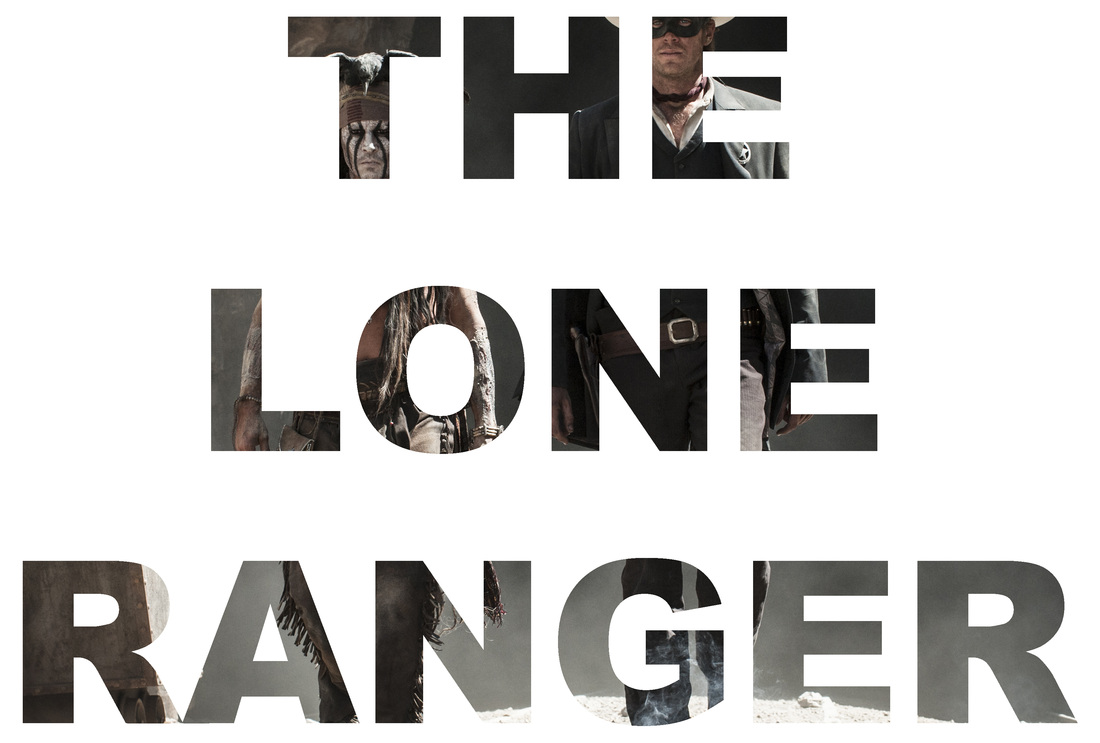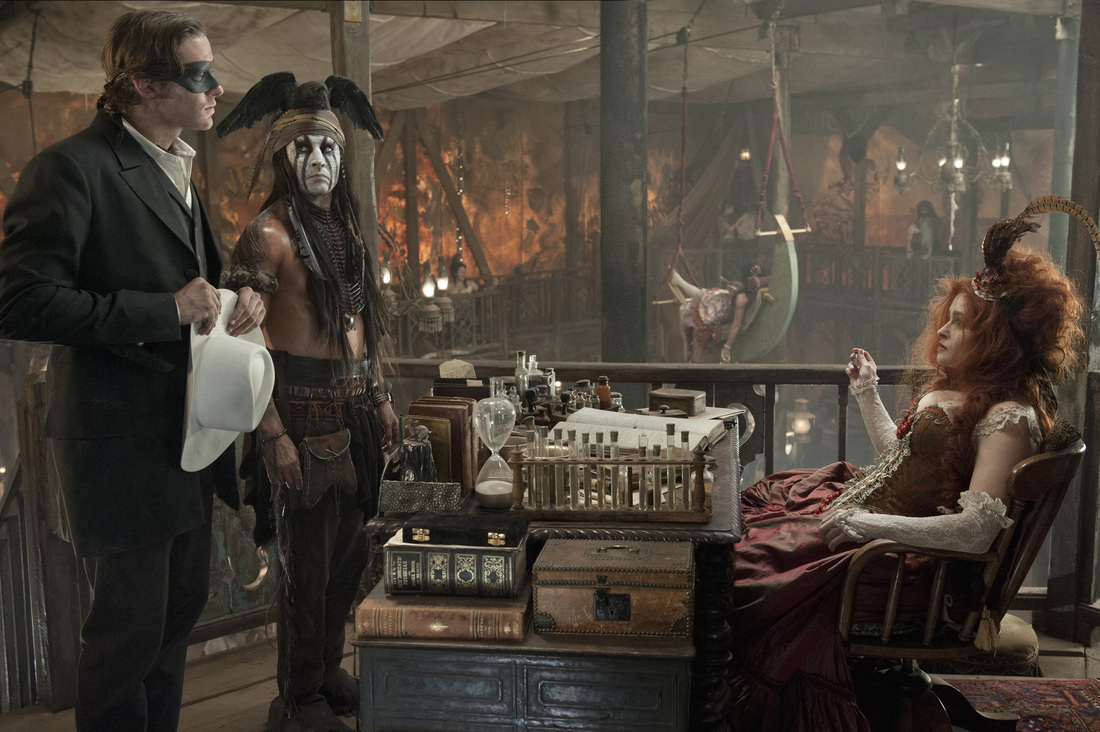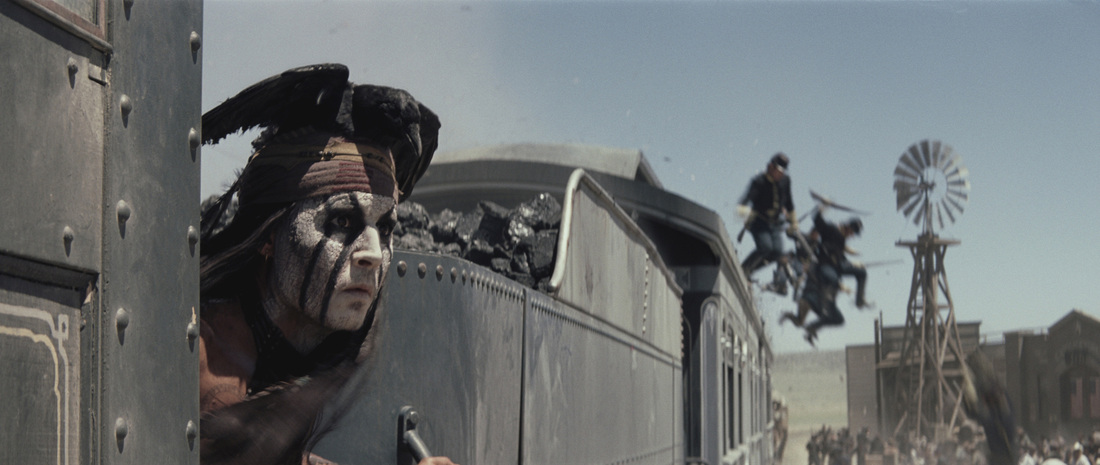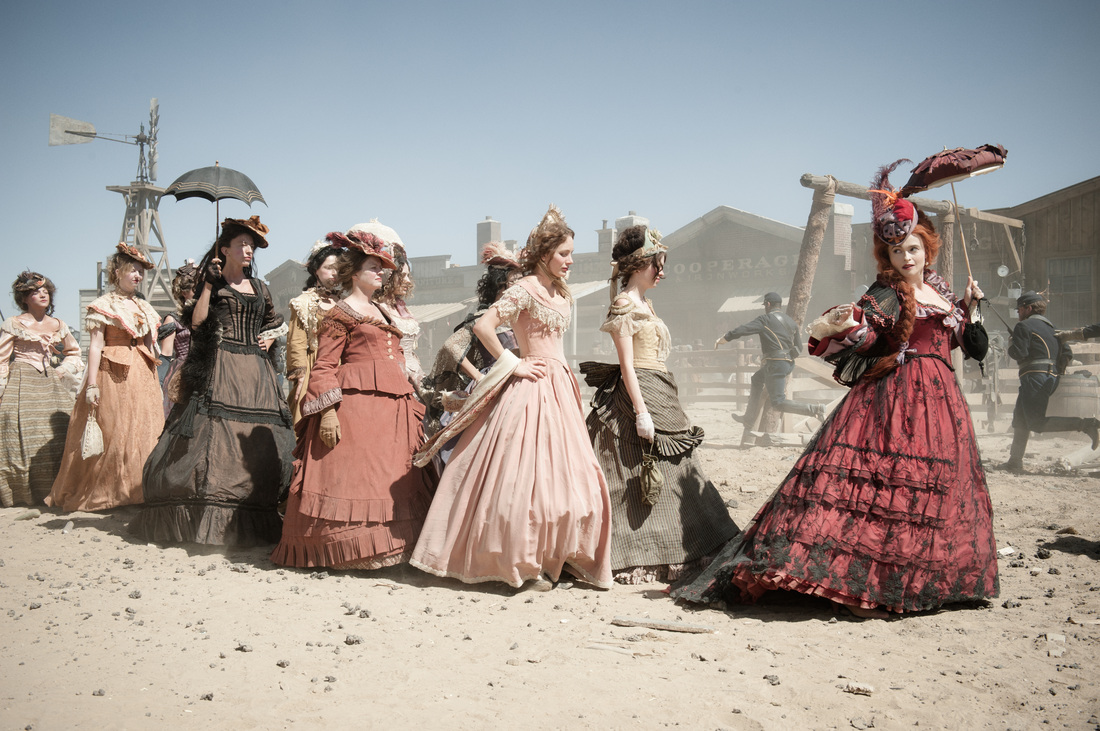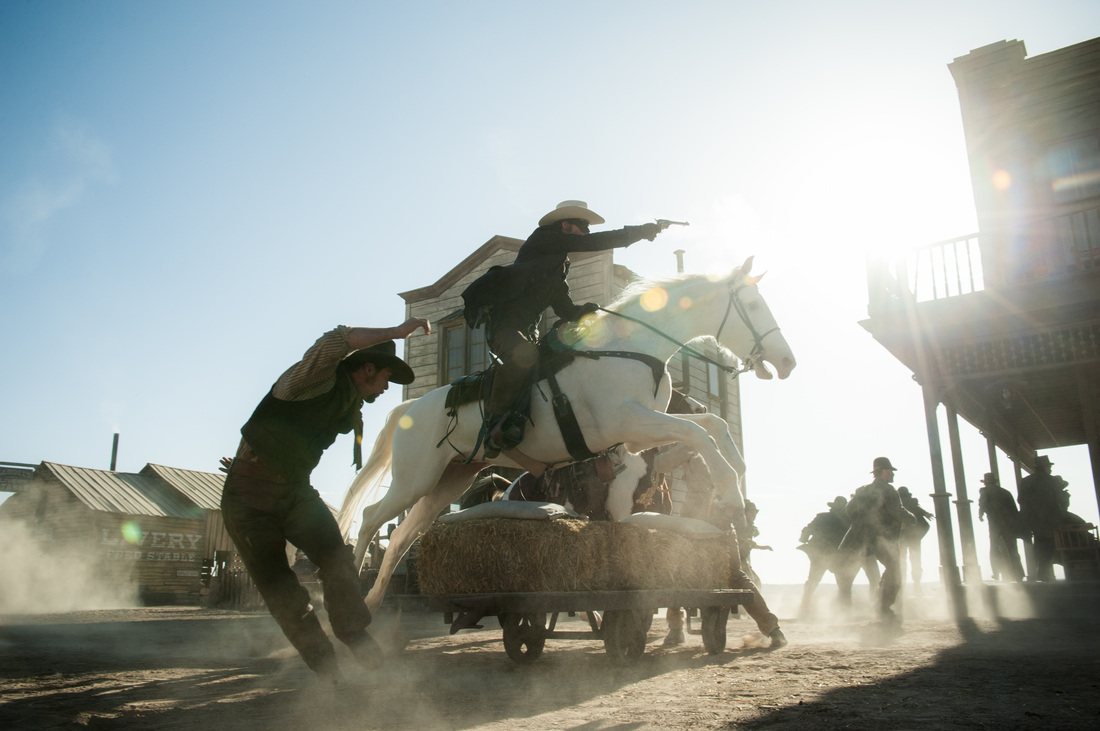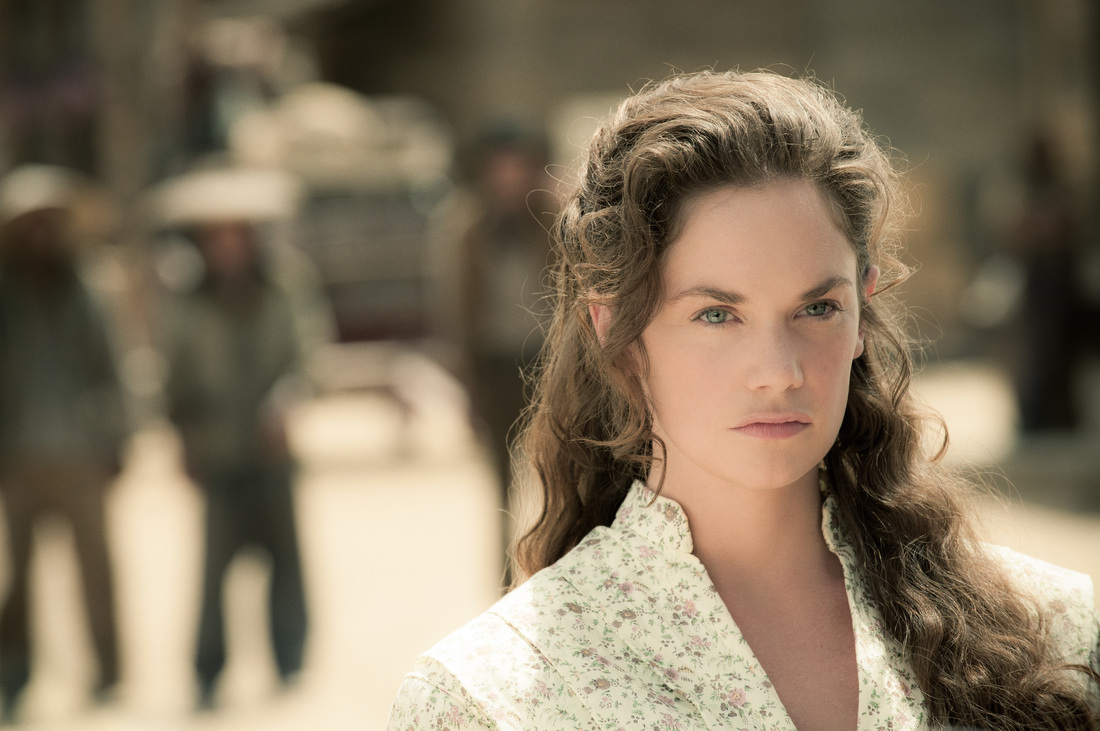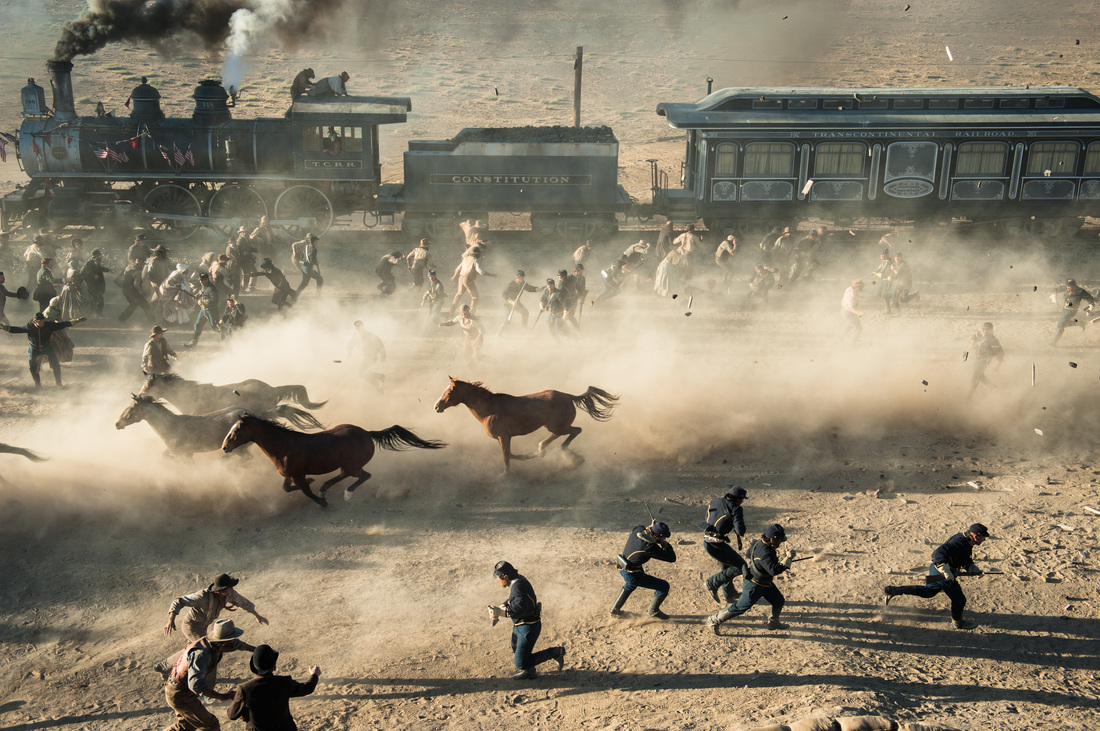|
How entertaining? ★★★★☆
Thought provoking? ★★☆☆☆ 21 July 2013
This article is a review of THE LONE RANGER.
|
“I want to show you something. From the time of Alexander the Great, no man could travel faster than the horse that carried him. Not anymore. Imagine: Time and space, under the mastery of man, power that makes emperors and kings look like fools. Whoever controls this, controls the future,” Latham Cole (Tom Wilkinson)
San Francisco, 1933. The camera pulls back to reveal a vista of the partially completed Golden Gate Bridge. The lens roves, coming to a fairground. A young boy dressed as a cowboy enters an exhibit of selected depictions of national history, before arresting his gaze on what looks to be a statue of an old man, a Native American. It of course moves, revealing an aged Tonto (Johnny Depp), who proceeds to recount a certain seminal moment of his life… This framing device is repeatedly returned to, providing context, and a literal get-out-of-jail device to paper over plot leaps. At first, such a mechanic feels to be an unnecessary crutch THE LONE RANGER does not need. However, if one takes a step back, it adds a melancholic nostalgia to a tale set in the last arguable age of wonder and naivety.
San Francisco, 1933. The camera pulls back to reveal a vista of the partially completed Golden Gate Bridge. The lens roves, coming to a fairground. A young boy dressed as a cowboy enters an exhibit of selected depictions of national history, before arresting his gaze on what looks to be a statue of an old man, a Native American. It of course moves, revealing an aged Tonto (Johnny Depp), who proceeds to recount a certain seminal moment of his life… This framing device is repeatedly returned to, providing context, and a literal get-out-of-jail device to paper over plot leaps. At first, such a mechanic feels to be an unnecessary crutch THE LONE RANGER does not need. However, if one takes a step back, it adds a melancholic nostalgia to a tale set in the last arguable age of wonder and naivety.
|
|
|
Wasting no time after a subdued intro, THE LONE RANGER takes us to the wild west of 1869. A locomotive is pounding its way to the end of the line, as the Transcontinental Railroad Company continues to extend its reach. Aboard is a fearsome prisoner, Butch Cavendish (William Fichtner). Awaiting him at the station, in a cheeky echo of the opening of ONCE UPON A TIME IN THE WEST, are a group of Texas Rangers, led by Dan Reid (James Badge Dale). Chasing the train is Cavendish’s outlaw gang. Butch is chained up with Tonto, arrested for an unspecified crime. It appears he is intentionally ensconced in the company of Cavendish to enact some sort of retribution. However, before redress can be exacted, Butch uncovers a hidden pistol, suggesting an inside job. Utter delirious mayhem is unleashed. Director Gore Verbinski proves once again he is in that elite camp that can handle pandemonium on a $200 million+ scale, with panache. District Attorney John Reid (Armie Hammer) is also aboard the train, and bravely/foolhardily enters the skirmish.
Cavendish escapes, setting up the raison d’être for the eventual team up of Tonto and John, who takes the whole film to settle into his guise as masked vigilante The Lone Ranger. Relationships, character traits and motivations are quickly established:
- Tonto is of questionable sanity, continually attempting to feed the dead crow on his head, funnily enough in the shape of a pirate tricorne hat. The shtick begins to wear thin, until Tonto’s background is teased out.
- Dan and John Reid are brothers. (Dale and Hammer even look similar). The latter is in love with his sibling’s wife, Rebecca (Ruth Wilson – given not much to do unfortunately but be the damsel in distress). The way she looks at him suggests mutuality. However, all three are too decent to play dastardly.
- In need of hunting down Cavendish, Dan deputises John as a Ranger. It’ll be no surprise when he gets his full epithet.
- Latham Cole is the mellifluously voiced Transcontinental man in charge, epitomising the worst excesses and immortality of capitalism.
Pertaining to that, THE LONE RANGER is a surprisingly subversive blockbuster: Tackling malfeasance and genocide; and for the exploitative and the intolerant, vengeance is taken to its brutal limits in a family film. There is little shirking when it comes to violence and havoc.
What’s unusual about a seemingly sunny blockbuster, is that everyone has an axe to grind with another player, whether a goodie or a baddie is involved. Talking it out is not on the cards. The more inventive the payback, the more satisfied the protagonist. It makes for an angry film, bile bubbling under the surface. Depp and THE LONE RANGER have been dealt a real beating in some quarters. One feels this is unfair. Yes the film is messy, but it is also wildly ambitious. It could easily go in the same category of the underrated, such as the HULK and OCEAN’S 12. Tonto may appear to be a clown, but the crazy exterior hides a dark and myopic assassin. Tonto tells The Lone Ranger, “There come a time, when good man must wear mask.” He’s actually talking as much about himself as John Reid. THE LONE RANGER wears the veil of breeziness, while the turbulent undercurrents of mournful rage go on behind.
“A civilised society has no need of a masked man,” John Reid

